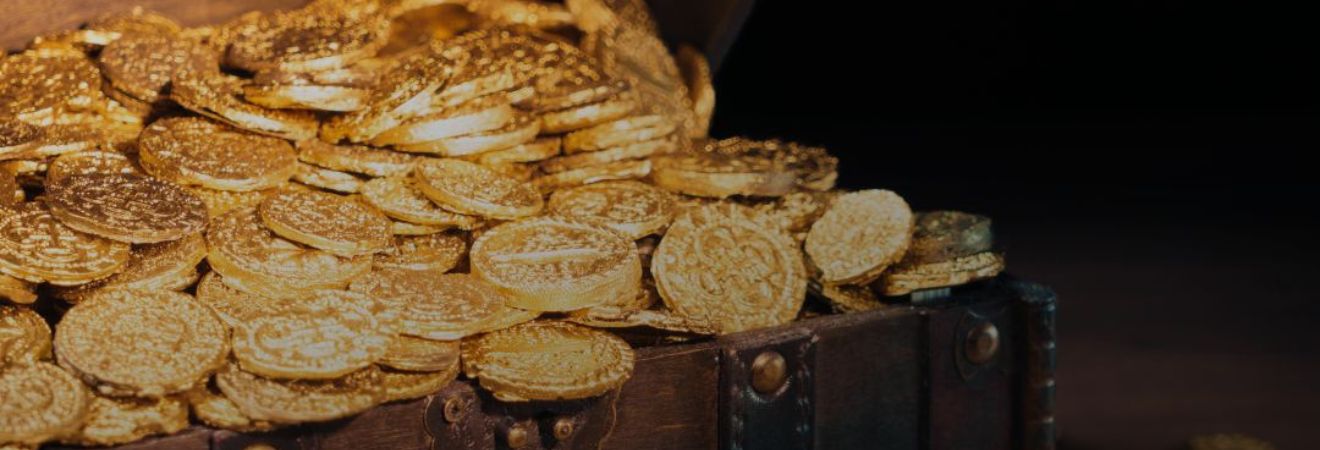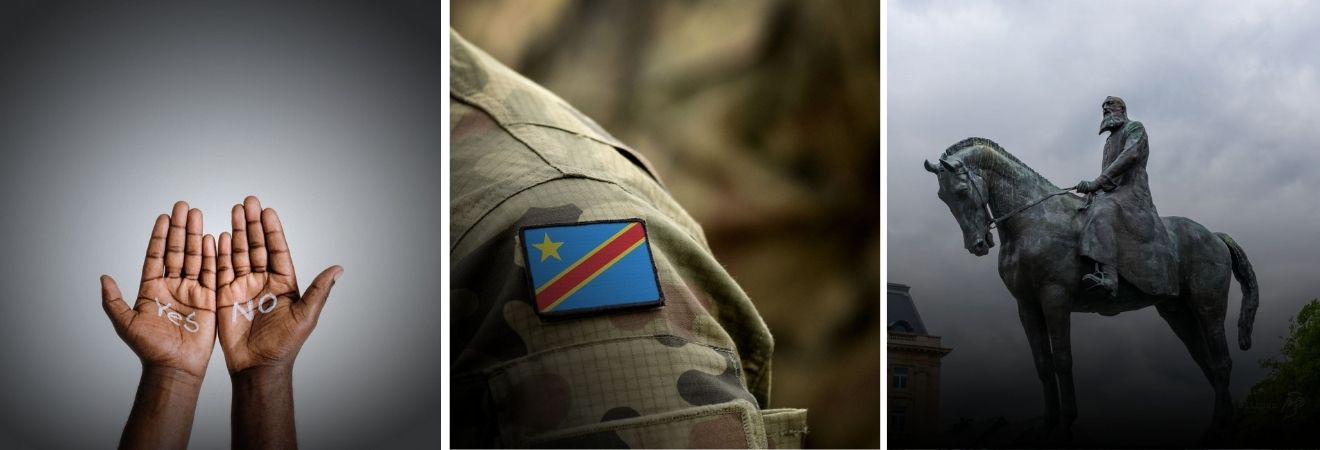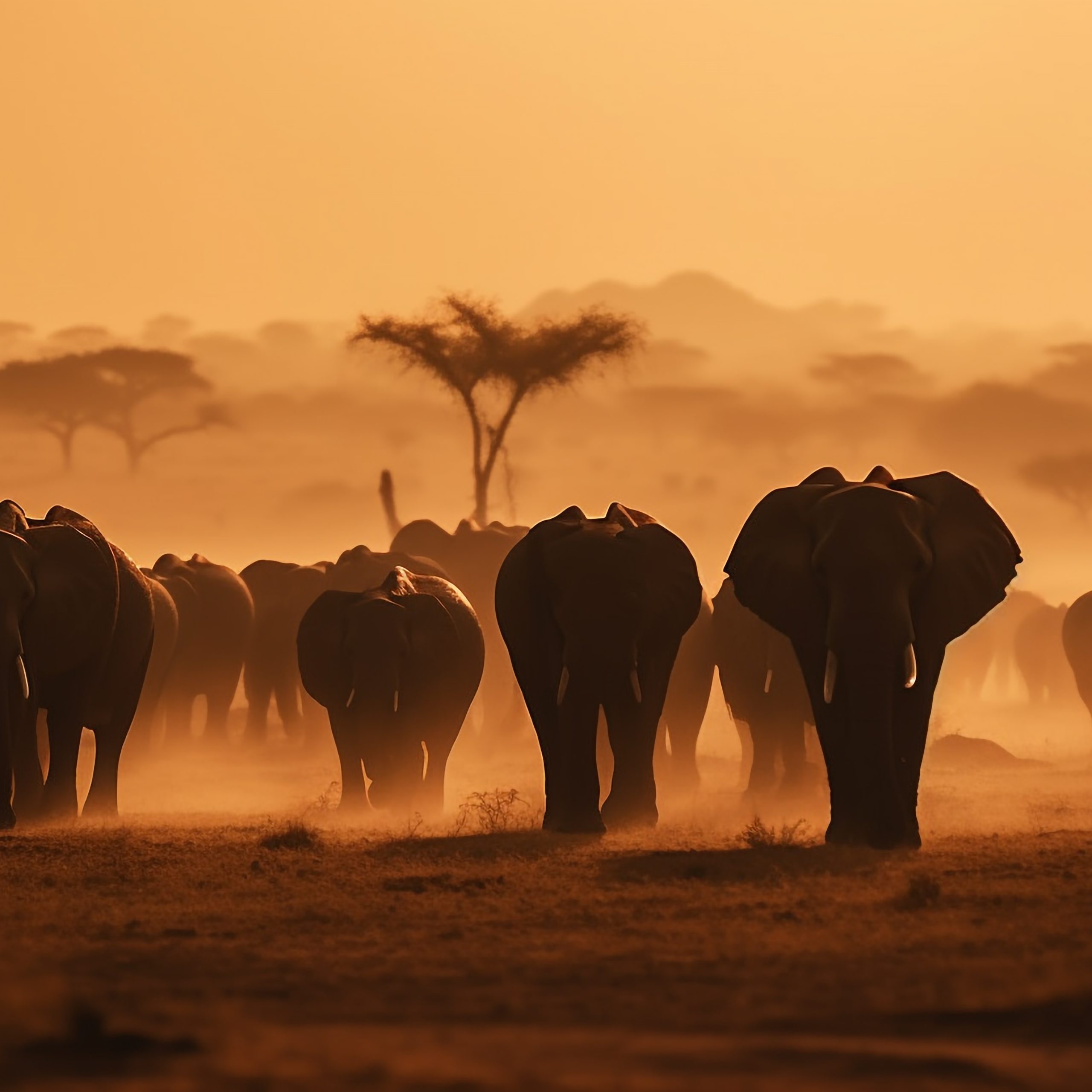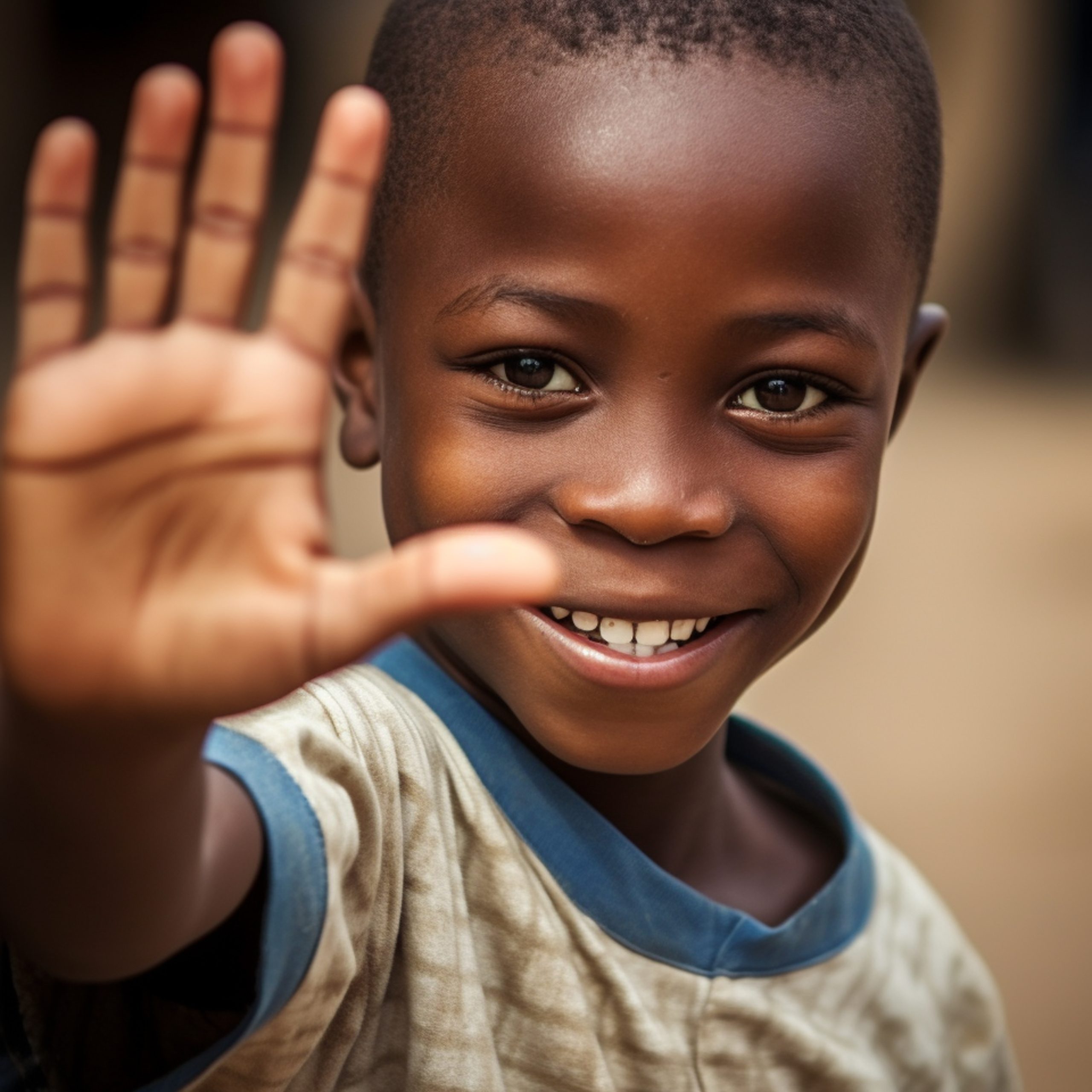THE TRAGIC PARADOX OF WEALTH AND WAR: THE HISTORY OF CONFLICT IN THE DEMOCRATIC REPUBLIC OF CONGO
by Mostafa Sleem updated on April 26, 2024
As the world watches global tensions with bated breath, the story of the DRC serves as a grim reminder of how easily the flames of conflict can be fanned. At the heart of Africa lies the paradoxical country, the Democratic Republic of Congo. The DRC is the second-largest country in Africa, blessed with the mightiest of rivers and an abundance of natural resources.
Nestled within this expansive nation is one of the globe’s richest treasures. As the second-largest country in Africa and home to the continent’s largest expanse of forest basin, the DRC is poised as a pivotal solution for global challenges.
However, it is also a place where the wealth of the land stands in stark contrast to the poverty of its people, where the promise of peace remains eternally elusive. The world currently grapples with an uncertain future; it’s not just a quest for peace in the DRC, it’s also a pursuit of justice and dignity for a people who have known little of either.
And perhaps in this tale of the Democratic Republic of Congo, there lies the crux of a broader question: What does peace truly mean for a nation riddled with such paradoxical wealth and poverty, and can this peace be profound and perpetual? Only time, dedicated efforts, and a unified approach to conflict resolution may eventually offer answers.
Today’s discussion will not orbit around the actions required to tranquilize the region, but instead, we will explore the significance of ushering in peace within the Democratic Republic of the Congo (DRC). It’s not merely about the steps ahead but about how to commence our journey towards stability and social well-being—the day when a global consensus acknowledges the DRC’s right to peace, signaling an administration determined to firmly halt the turmoil.

Where it all began!
Over a century ago, the specter of European imperialism cast its shadow across Africa. At the Berlin Conference, European powers sliced the continent into parts, heedless of the cultural and social rifts they were creating. It was at this time that King Leopold II of Belgium acquired a massive swath of land that would become the DRC.
Under King Leopold’s rule, the country experienced atrocities and exploitation on an unfathomable scale. In the heart of the African continent, the country fought for its freedom and gained independence in June 1960. Although this was supposed to be the beginning of a new chapter for the DRC, after 6 months, the country witnessed its first political assassination, bringing the country’s hopes down for a peaceful transition and becoming what is known as Zaire.
These early wounds have festered over the decades, as the nation’s vast mineral wealth has become both a blessing and a curse. Instead of serving as the engine for growth and stability, the DRC’s riches have fueled endless greed and conflict.
The Descent of Zaire and Rebirth of Congo
The DRC’s descent into chaos cannot be discussed without mentioning the horrific events that unfolded in Rwanda in 1994. The Rwandan Genocide disproportionately targeted Tutsis and moderate Hutus, leading to a mass exodus into the eastern DRC. Here, the seeds of international strife were planted, leading to a conflict that would involve multiple African nations.
In the latter half of the 1990s, the DRC, then known as Zaire, became the battleground of the First Congo War. Rwanda and Uganda’s military incursion intended to dismantle the genocidal forces taking refuge in the DRC. This conflict culminated in the overthrow of Mobutu Sese Seko’s dictatorship and the ascent to power of Laurent Désiré Kabila.
The instability in the regions has created multiple militia fractions with different agendas, backed by hostile channels that have not only plundered but have turned the region into hell.
Sadly, peace was short-lived. In 1998, the Second Congo War erupted, a conflict so vast that it’s often labeled ‘Africa’s World War’. Involving nine African countries and causing unfathomable suffering and loss, the war officially ended with various accords and the establishment of a Transitional Government in the DRC.
The assassination of Laurent Kabila in January 2001 thrust his son, Joseph Kabila, into power, who inherited a nation in deep turmoil. He managed to win the presidency in the DRC’s first democratic elections after four decades.

DRC’s Inherited Turmoil? Is It Though?
Efforts to stabilize the region continued. In 2008, the DRC and Rwanda collaborated against the FDLR militia in the Kivu provinces. Militant groups like the M23 rose and fell, each cycle of violence dashing hopes for sustained peace. Notably, Bosco Ntaganda, “the Terminator,” turned himself in and faced trial for war crimes, signifying a glimmer of accountability in a land where impunity had reigned.
However, the fall of some militant groups did not mean a full pacification of the region. Other militant groups continue to work in the Area, continuing to displace and commit atrocities on local communities.
Today, the Eastern DRC remains fraught with strife. Numerous armed groups vie for control over territory and resources, continuing a legacy of violence. Civilians are caught in the crossfire, their aspirations for peace overshadowed by the thunder of guns and the machinations of those who profit from war.
International and regional bodies strive to address the complex tapestry of issues at play—from ethnic animosity to political power struggles and resource competition. Yet the path to peace is fraught with setbacks and the aspirations of the Congolese for a future free from the specter of war remain just that – aspirations.
A Prosperous Nation Unveiled
In delving into the tumultuous chronicles of history, it becomes evident that the East is not merely a battleground for conflicts on the African continent but also a cradle of immense wealth and untapped opportunities. This region is endowed with an abundance of vital minerals that are pivotal not just for its own prosperity but for the global good as well.
Contrary to common misconceptions held by many, the Democratic Republic of the Congo (DRC) is a treasure trove that extends beyond its rich mineral reserves. It offers an excess of opportunities across its expansive territories. Over the past five years, the country has witnessed remarkable progress. The global pandemic, while bringing the world to a halt, paradoxically opened avenues for investors to explore and engage with the African continent, with the DRC emerging as a focal point of interest in its role in climate change and Energy Transition.
The DRC harbors the potential to revolutionize its economy through sectors such as agro-industry, construction materials, coking, and the manufacturing of petroleum products and hydrocarbons. The DRC government, through ANAPI, has delineated key development sectors across regions, introducing measures to bolster education and ensure the social well-being of its populace, thereby healing the scars of turbulent years. However, the eastern part of the DRC remains largely overlooked, its immense possibilities overshadowed by the grim realities of conflict and exploitation.
Envisioning a peaceful DRC unveils a picture of profound transformation. By ensuring stability and security, we can unlock the doors to numerous opportunities, thereby mitigating the inherent risks that have long deterred progress. A tranquil DRC stands not only to reshape its own destiny but also to significantly contribute to all communities, highlighting the power of peace in unlocking potential and fostering prosperity.
Social Impact and Integration
The Eastern region of the Democratic Republic of the Congo (DRC) has endured a cycle of instability that has deeply affected the very essence of its communities. The recurrent conflicts have not only dismantled the social structure but also led to the fragmentation of families and exposed the population to heightened vulnerability. The continual upheaval has eroded the inhabitants’ connection to their homeland, rendering the prospect of return a distant hope for many. To rebuild this bond, a foundational sense of safety and belonging must be reestablished.
A stable and peaceful DRC can attract investments, particularly from local communities, spurring economic growth and creating employment opportunities. Such developments are crucial not only for reviving the citizens’ sense of belonging but also for catalyzing the all-around development of various regions. This positive trend promises to increase government revenue through taxes and simultaneously paves the way for comprehensive national development.
To mend the torn fabric of society in Eastern DRC, a multi-faceted approach is essential. It involves restoring stability, rebuilding trust in the state’s capacity to provide security, and implementing systems that reinforce national identity and social cohesion.
Food security
The Democratic Republic of the Congo (DRC), endowed with approximately 80 million hectares of arable land, stands as a beacon of agricultural potential in Africa, poised not only to achieve self-sufficiency in food production but also to emerge as a key player in regional food security. Despite the DRC’s vast resources, a mere 1% of its fertile land is currently cultivated. This underutilization exists in stark contrast to the nation’s importation habits, with more than US$ 2.5 billion spent in 2019 on importing staples such as cereals, sugar, fruits and vegetables, and fish.
Considering this, the DRC is positioned to harness its agricultural potential to not only meet its own food security needs but to also contribute significantly to the region’s sustenance. The country’s fertile landscapes, coupled with a climate conducive to varied agricultural endeavors, present an unparalleled opportunity to support the livelihoods of its over 85 million inhabitants and to produce enough to feed beyond its borders, with the capacity to nourish over 2 billion people globally, if leveraged correctly.
However, achieving this vision by 2030, as stated by the Congolese government, extends beyond mere investment in agriculture; it necessitates a concerted effort to enhance infrastructure. The development of infrastructure is crucial for facilitating swift decision-making processes among partners and government entities, minimizing risks, and enabling the seamless transport and distribution of agricultural products. The emphasis on infrastructure improvement has brought several regional corridors, notably the Lobito Corridor, to the forefront of strategic planning discussions.
Moreover, providing technical assistance and fostering a strong connection between local communities and their land is essential. By empowering communities, we not only foster a culture of ownership and stewardship but also fuel sustainable practices that are critical for long-term success.
The DRC’s journey towards becoming a regional food basket underscores the importance of strategic investments, robust infrastructure, and community engagement. By addressing these pillars, the DRC can unlock its agricultural potential, ensuring food security for itself and making a significant contribution to the African continent.
Advancing Climate Change Solutions and Energy Transition
Efforts to curb emissions have seen some progress, yet the specter of global warming and climate change looms large over humanity. A startling revelation from the Global Carbon Project highlights a 5.6% surge in global CO2 emissions in 2022 due to fossil fuel combustion and industrial activities—the most substantial increase ever recorded. This underscores the urgency for decisive and collective action to combat climate change.
Annually, global stakeholders convene to deliberate on climate change, focusing on crucial areas such as amplifying financial support, accelerating the reduction of emissions, ensuring climate justice, and solidifying the political resolve necessary for significant climate action.
The Democratic Republic of the Congo (DRC), nestled within Africa’s largest rainforest basin—often referred to as the Earth’s lungs—occupies a central role in these discussions. Its vast carbon sinks not only play a critical role in diminishing CO2 levels but also bolster the global ecosystem through the conservation of unique flora and fauna, which support scientific research and various industries, notably pharmaceuticals.
Moreover, the DRC’s mineral riches present a golden opportunity for the global community to foster climate action. By leveraging these minerals, there is potential to substantially aid energy transition efforts, consequently decreasing the costs of essential minerals and spurring investments aimed at realizing the 2050 net-zero emission targets.
Acknowledging its position as a key player due to its mineral wealth, the DRC government has taken substantial steps to assert its influence in global environmental and economic discussions. Aiming for self-sufficiency and enhanced sectoral development, the DRC is actively pursuing value chain development within its mining sector, signifying a commitment to equitable wealth distribution.
This commitment is exemplified through the DRC’s support of Buenassa, an innovative force in the mining industry, in constructing the inaugural refinery plant in the Lualaba region. This initiative not only marks a milestone in the country’s mining industry but also symbolizes the DRC’s dedication to fostering a sustainable and self-reliant mineral sector. This move towards enhancing its mining value chain reflects a broader ambition to contribute meaningfully to global energy transition initiatives, positioning the DRC as a pivotal figure in the fight against climate change and the push for a more sustainable future.
Eco-tourism
Finally, let’s unveil the wonders of the Democratic Republic of Congo (DRC) to the world. A transformed, tranquil DRC has the potential to unlock its gates, inviting the globe to revel in its magnificence firsthand. While tales of the DRC’s vastness abound, only a visit can truly immerse one in its splendor.
The DRC offers an enriching experience, showcasing the countless elements that set this country apart. Straddling the equator and nestled below it, the DRC beckons with its rich and varied biodiversity. Visitors can savor the enchanting allure of its savannahs, dense forests, breathtaking vistas, and diverse wildlife, including the renowned Virunga National Park. Furthermore, the tapestry of cultures it encompasses is nothing short of extraordinary—with four major languages and over a hundred tribes, each contributing a unique hue to this vibrant mosaic.
Ecotourism not only entices the world to the DRC but also fosters a bridge between disparate cultures, fostering connections and facilitating the exchange of ideas. It is a conduit for mutual learning, allowing both visitors and Congolese locals to partake in a captivating cultural interchange, underpinned by a celebration of diversity.
In conclusion, the turbulent history of the Democratic Republic of Congo (DRC) serves as a stark reminder of the delicate balance between wealth and conflict. As the nation grapples with its past and present struggles, it stands at a crossroads, yearning for a future defined by peace, justice, and prosperity.
The quest for peace in the DRC is not merely a local endeavor but a global imperative, reflective of a broader question: What does lasting peace mean for a nation embroiled in paradoxical wealth and poverty? As the nation navigates its complex history and works towards stability, it seeks to redefine its narrative, paving the way for a future where the promise of its abundant resources can benefit all its citizens.
The potential of the DRC is immense, extending far beyond its rich mineral reserves to encompass opportunities for economic growth, social development, and environmental stewardship. By harnessing its agricultural potential, supporting climate change solutions, and embracing ecotourism, the DRC can unlock pathways to sustainable progress and shared prosperity.
As the world watches, the Democratic Republic of Congo faces a crucial juncture—a moment where the shadows of conflict can be dispelled by the light of enduring peace. By uniting in a shared vision of stability, resilience, and inclusivity, the DRC can transcend its tumultuous past and emerge as a beacon of hope for a brighter, more harmonious future for its people and the world at large.



